- Home
- Robin Cook
Crisis Page 6
Crisis Read online
Page 6
“She smoked like there was no tomorrow, one cigarette after another, going through several packs a day. And that was just a part of it. I’m telling you, she was the poster woman for all the noncompliant patients of the world, especially concerning medication. She demanded prescriptions and then took the drugs or didn’t take them according to her whim.”
“Did you have any idea why she didn’t follow orders?”
“Probably because she liked being sick. It gave her something to do. That’s the long and short of it. She was a waste of time for me, for her husband, even for herself. Her passing was a blessing for everyone. She didn’t have a life.”
Craig had calmed down enough to take a drink of his scotch without spilling any.
“I remember from the few times I had contact with her in the office, she seemed like a piece of work,” Leona said placatingly.
“That’s the understatement of the year,” Craig grumbled. “She was an entitled bitch with some inherited money, meaning she expected me to hold her hand and listen to her complaints ad nauseam. I struggled through four years of college, four years of medical school, five years of residency, board certification, and authored a handful of scientific papers, and all she wanted was for me to hold her hand. That was it, and if I held it for fifteen minutes, she wanted thirty, and if I gave her thirty, she wanted forty-five, and if I refused, she became sulky and hostile.”
“Maybe she was lonely,” Leona suggested.
“Whose side are you on?” Craig demanded angrily. He slapped his drink down onto the table, clanking the ice cubes. “She was a pain in the ass.”
“Geez, relax already!” Leona urged. She glanced around self-consciously and was relieved to see that no one was paying them the slightest attention.
“Just don’t start playing devil’s advocate,” Craig snapped. “I’m not in the mood.”
“I’m only trying to get you to calm down.”
“How can I calm down? This is a disaster. I’ve worked all my life to be the best doctor. Hell, I’m still working at it. And now this!” Craig angrily slapped the envelope containing the legal papers.
“But isn’t this the reason you pay the malpractice insurance you complain about?”
Craig eyed Leona with exasperation. “I don’t think you understand. This screwball Stanhope is publicly defaming me by demanding his, quote, ‘day in court.’ The process is the problem. It’s bad no matter what happens. I’m helpless, a victim. And if you go to trial, who knows how it will turn out. There are no guarantees, even in my situation, where I’ve been bending over backward for my patients, particularly Patience Stanhope, making house calls for crying out loud. And the idea it would be a trial by my peers? That’s a bad joke. File clerks, plumbers, and retired schoolteachers have no idea what it’s like being a doctor like me, getting up in the middle of the night to hold hypochondriacs’ hands. Jesus H. Christ!”
“Can’t you tell them? Make it part of your testimony.”
Craig rolled his eyes with exasperation. There were occasions when Leona drove him batty. It was the downside of spending time with someone so young and inexperienced.
“Why does he think there was malpractice?” Leona asked.
Craig looked off at the normal, beautiful people around the bar, obviously enjoying the evening with their happy banter. The juxtaposition made him feel worse. Maybe coming up to the public bar was a bad idea. The thought went through his mind that perhaps becoming one of them through his cultural endeavors was really beyond his grasp. Medicine and its current problems, including the malpractice mess, had him ensnared.
“What malpractice was there supposed to have been?” Leona asked, rephrasing her question.
Craig threw up his hands. “Listen, bright eyes! It’s generic on the complaint, saying something about me not using the skill and care in making a diagnosis and treatment that a reasonable, competent doctor would employ in the same circumstance…blah blah blah. It’s all bullshit. The long and short is that there was a bad outcome, meaning Patience Stanhope died. A personal injury—malpractice lawyer will just go from there and be creative. Those guys can always find something that some asshole, courthouse-whore doctor will say should have been done differently.”
“Bright eyes!” Leona snapped back. “Don’t be condescending to me!”
“Okay, I’m sorry,” Craig said. He took a deep breath. “Obviously, I’m out of sorts.”
“What’s a courthouse-whore doctor?”
“It’s a doctor who hires himself or herself out to be a, quote, ‘expert,’ and who will say whatever the plaintiff attorney wants him to say. It used to be hard to find doctors to testify against doctors, but not anymore. There are some worthless bastards that make a living doing it.”
“That’s terrible.”
“It’s the least of it,” Craig said. He shook his head dejectedly. “It’s mighty hypocritical that this screwball Jordan Stanhope is suing me when he didn’t even stay around at the hospital while I was struggling to revive his pathetic wife. Hell, on a number of occasions he confided in me that his wife was a hopeless hypochondriac and that he couldn’t keep all her symptoms straight. He was even apologetic when she’d have him call and insist I come to the house at three in the morning because she thought she was dying. That really happened on more than one occasion. Usually, the house calls were in the evenings, forcing me to interrupt what I was doing. But even then, Jordan would always thank me, so he knew what kind of effort it was, coming out there for no good reason. The woman was a disaster. Everyone is better off with her out of the picture, including Jordan Stanhope, yet he is suing me and claiming damages of five million dollars for loss of consortium. What a cruel joke.” Craig shook his head dejectedly.
“What’s consortium?”
“What someone is supposed to get from a spouse. You know: company, affection, assistance, and sex.”
“I don’t think they were having much sex. They had separate bedrooms!”
“You probably have that right. I can’t imagine he’d want to or even be able to have sex with that miserable hag.”
“Do you think the reason he’s suing you might have something to do with you criticizing him that night? He did seem to take offense.”
Craig nodded a few times. Leona had a point. With glass in hand, he slipped off the barstool and returned to the bar for a refill. As he waited among the happy revelers, he thought about Leona’s idea and wondered if she was correct. He remembered regretting what he had said to Jordan when he’d gotten into Patience’s bedroom and saw how bad off she was. His comment had just popped out of his mouth in the stress of the circumstances and how surprised he’d been. At the time, he’d thought his hasty apology had been sufficient, but maybe not. If not, he was going to regret the incident even more.
With a second double scotch, Craig worked his way back to the table and got himself onto his barstool. He moved slowly, as if his legs weighed a hundred pounds apiece. To Leona he seemed to have made yet another transition. He now appeared depressed, his mouth slack and his eyes droopy.
“This is a disaster,” Craig managed with a sigh. He stared down into his scotch, his arms folded on the table. “This could be the end of everything, just when things are going so well.”
“How can it be the end of everything?” Leona asked, trying to be lively. “What are you supposed to do now that you have been served?”
Craig didn’t answer. He didn’t even move. Leona couldn’t even see him breathing.
“Shouldn’t you get a lawyer?” Leona persisted. She leaned forward in an attempt to look up into Craig’s face.
“The insurance company is supposed to defend me,” Craig responded in a flat voice.
“Well, there you go. Why not call them?”
Craig raised his eyes and met Leona’s. He nodded a few times as he gave Leona’s suggestion consideration. It was almost five thirty on a Friday night, yet the insurance company might have someone on call. It was worth a try. He cou
ld use the reassurance that he was at least doing something. A big part of his anxiety was from the helplessness he felt in the face of such an overwhelming, disembodied threat.
With newly found urgency, Craig snapped his cell phone from its clip on his belt. Using klutzy fingers, he scrolled through his address book. Like a beacon in a dark night, the name and cell phone number of his insurance agent popped into view. Craig made the call.
It ended up requiring several calls, including having to leave his name and number in an emergency voicemail, but within a quarter of an hour, Craig was able to tell his story to a real person with an authoritative voice who acted calmly knowledgeable. His name was Arthur Marshall, the sound of which Craig found curiously reassuring.
“Since this is your first brush with this kind of event,” Arthur was saying, “and since we know from experience how uniquely unsettling it is, I think it is important for you to understand that for us it is all too common. In other words, we are experienced in dealing with malpractice litigation, and we will give your case all the attention it deserves. Meanwhile, I want to emphasize that you should not take it personally.”
“How else can I take it?” Craig complained. “It’s calling into question my life’s work. It’s putting everything in jeopardy.”
“That is a common feeling for someone like yourself and entirely understandable. But trust me, it is not like that! It is not a reflection of your dedication and life’s work. More often than not, it is a fishing expedition in hopes of a financial windfall despite the plaintiff attorney’s claims to the contrary. Everyone familiar with medicine knows that less-than-perfect outcomes, even involving honest mistakes, are not malpractice, and the judge will so advise the jury if this action were to go to a trial. But remember! The vast majority of such cases do not go to trial, or if they do, the vast majority are won by the defense. Here in Massachusetts, by statute your claim must go before a tribunal, and with the facts you’ve given me, it probably will stop there.”
Craig’s pulse had come down to a nearly normal level.
“You’re wise to have contacted us so early in the course of this unfortunate affair, Dr. Bowman. In short order, we will assign a skilled, experienced attorney to the case, and for that we will need to get the summons and the complaint ASAP. You are required to answer within thirty days of service.”
“I can messenger this material on Monday.”
“That will be perfect. Meanwhile, let me suggest you begin to refresh your mind about the case, particularly by getting your records together. It’s something that has to be done, and it will give you the feeling you are doing something constructive to protect yourself. From our experience, we know that is important.”
Craig found himself nodding in agreement.
“In regard to your records, Dr. Bowman, I must warn you not to change them in any way or form. That means do not change a misspelled word or an obvious grammatical error or something you might feel is sloppy. Do not change any dates. In short, do not change a thing. Do you understand?”
“Absolutely.”
“Good! Of those malpractice cases found for the plaintiff, a sizable number involved some editing of the records, even if the editing was entirely inconsequential. Any alteration is a recipe for disaster, since it impugns your integrity and truthfulness. I hope I’m making myself clear.”
“Perfectly clear. Thank you, Mr. Marshall. I’m feeling a bit better.”
“And indeed you should, doctor. Rest assured, we will be giving your case our full attention since all of us want to bring it to a speedy, successful conclusion so that you can get back to what you do best: taking care of your patients.”
“I’d like nothing better.”
“We are at your service, Dr. Bowman. One last issue, of which I’m sure you are already cognizant. Do not…I repeat…do not discuss this matter with anyone accept your spouse and the attorney we assign! This extends to all colleagues, acquaintances, and even close friends. This is very important.”
Craig looked guiltily across the table at Leona, realizing how much he’d been inappropriately babbling. “Close friends?” Craig questioned. “That means possibly having to forgo emotional support.”
“We recognize that, but the downside is worse.”
“And what exactly is the downside?” He wasn’t sure how much of the incoming conversation Leona could hear. She was watching him intently.
“Because friends and colleagues are discoverable. Plaintiff attorneys can and do, if it serves their interests, force friends, even close friends, and colleagues to be witnesses, often to great effect.”
“I’ll keep that in mind,” Craig said. “Thank you for your admonitions, Mr. Marshall.” Craig’s pulse had quickened again. Being honest with himself, he had to admit that he really didn’t know Leona beyond her youthful and understandable self-centeredness. Having been so talkative added to his anxiety.
“And thank you, Dr. Bowman. We will be in touch as soon as we get the summons and the complaint. Try to relax and go about your life.”
“I’ll try,” Craig said without a lot of conviction. He knew he was going to be living under a dark cloud until all was settled. What he didn’t know was how dark it was going to get. In the meantime, he vowed to avoid calling attention to Leona’s accent. He was smart enough to know that what he had confided about his feelings toward Patience Stanhope would not play well in a court of law.
NEW YORK, NEW YORK
October 9, 2005
4:45 p.m.
Jack Stapleton turned his attention to the heart and the lungs. In front of him, spread out on the autopsy table, was the naked, gutted remains of a white, fifty-seven-year-old female. The victim’s head was propped up on a wooden block, and her unseeing eyes stared blankly at the overhead fluorescent lights. Up until that point in the postmortem, there had been little pathology save for a rather large, apparently asymptomatic uterine fibroid. Specifically, there had been nothing as yet to account for the death of an apparently healthy woman who had collapsed in Bloomingdale’s. Miguel Sanchez, the evening mortuary technician who’d come in at 3:00 p.m. to start his day, was assisting. While Jack prepared to examine the heart and lungs, Miguel was busy at the sink, washing out the intestines.
By merely palpating the surface of the lungs, Jack’s experienced hands perceived an abnormal resistance. The tissue was firmer than usual, which was consistent with the organ’s weight being higher than normal. With a knife that looked like a garden-variety butcher knife, Jack made multiple slices into the lung. Again, there was the suggestion of more resistance than he would expect. Lifting the lung, he examined the cut surfaces, which reflected the organ’s consistency. The lung appeared denser than normal, and he was confident that the microscope would show fibrosis. The question was…why were the lungs fibrotic?
Turning his attention to the heart, Jack picked up toothed forceps and a pair of small, blunt-nosed scissors. Just when he was about to begin work on the muscular organ, the door to the hallway opened. Jack hesitated as a figure appeared and approached. It took only a moment for him to recognize Laurie despite the light reflecting off her plastic face mask.
“I was wondering where you were,” Laurie said with a hint of exasperation. She was dressed in full-body disposable Tyvek protective gear, as were Jack and Miguel. It was a standing order by Dr. Calvin Washington, the deputy chief medical examiner, to wear such an outfit for protection against potential infectious agents when in the autopsy room. One never knew what kind of microbes might be encountered, especially in an autopsy room as busy as the one in New York City.
“Wondering where I was suggests you were looking for me.”
“Brilliant deduction,” Laurie said. She glanced down at the ghostly pale human shell on the table. “This was the last place I thought to look for you. Why such a late post?”
“You know me,” Jack quipped. “I have no restraint whatsoever when an opportunity to have fun knocks on my door.”
“Anythi
ng interesting?” Laurie said, immune to Jack’s sarcastic humor. She reached out and touched the surface of the cut lung with her gloved index finger.
“Not yet, but I think I’m about to hit pay dirt. You can see that the lung appears fibrotic. I believe the heart’s going to tell us why.”
“What’s the background of the case?”
“The victim was given the price of a pair of Jimmy Choo shoes in Bloomie’s and arrested.”
“Very funny.”
“Seriously, she did arrest in Bloomingdale’s. Of course, I don’t know what she was doing. Apparently, the store staff and a Good Samaritan doctor who happened to be on the scene attended to her immediately. They started CPR, and it was continued in the ambulance all the way over to the Manhattan General. When the body arrived over here at the OCME, the head doc in the ER called to give me the story. He said that no matter what they did in the ER, they couldn’t get so much as a single beat out of the heart, even with a pacemaker. As chagrined as they were that the patient was so uncooperative as to not revive, he was hoping we could shed some light in case there was something else that could have been done. I was impressed with his interest and initiative, and since that is the kind of professional behavior we should be encouraging, I told him I’d do the case straight off and get right back to him.”
“Very commendable and industrious on your part,” Laurie said. “Of course, doing an autopsy at this hour, you’re making the rest of us look like slackers.”
“If it looks like a duck, quacks like a duck, it’s a duck!”
“Okay, wise guy! I’m not going to try to compete with your repartee. Let’s see what you got! You’ve got my interest, so go for it.”
Jack bent over, quickly but carefully traced the major coronary arteries, and then proceeded to open them. Suddenly, he straightened up. “Well, lookie here!” he said. He picked up the heart and held it so Laurie could see more easily. He pointed with the tip of his forceps.
“Good grief,” Laurie exclaimed. “That might be the most dramatic narrowing of the main trunk of the posterior descending artery I’ve ever seen. And it looks developmental, not atheromatous.”

 Shock
Shock Mutation
Mutation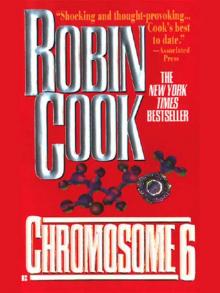 Chromosome 6
Chromosome 6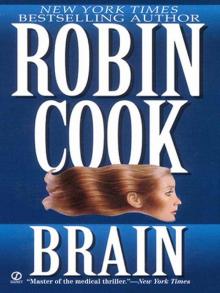 Brain
Brain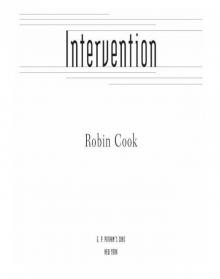 Intervention
Intervention Invasion
Invasion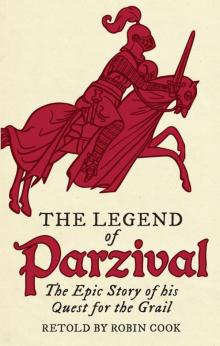 The Legend of Parzival: The Epic Story of His Quest for the Grail
The Legend of Parzival: The Epic Story of His Quest for the Grail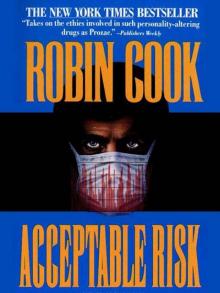 Acceptable Risk
Acceptable Risk Cell
Cell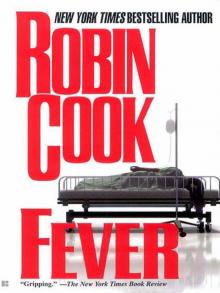 Fever
Fever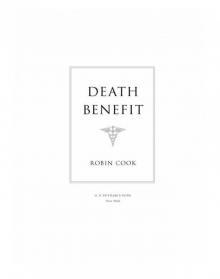 Death Benefit
Death Benefit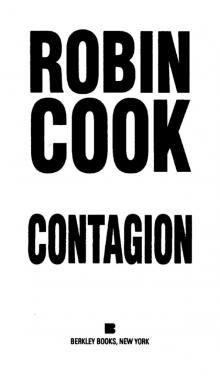 Contagion
Contagion Mindbend
Mindbend Coma
Coma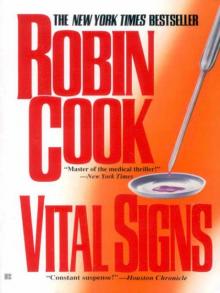 Vital Signs
Vital Signs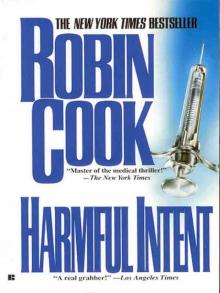 Harmful Intent
Harmful Intent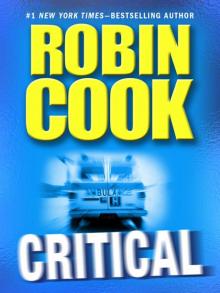 Critical
Critical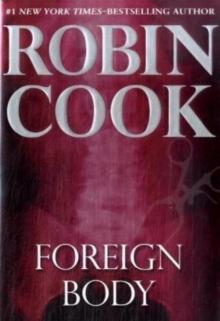 Foreign Body
Foreign Body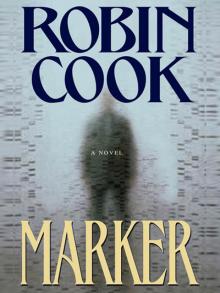 Marker
Marker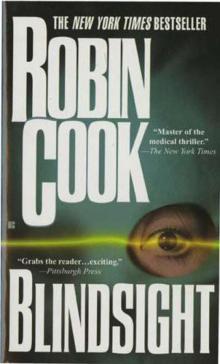 Blindsight
Blindsight Terminal
Terminal Sphinx
Sphinx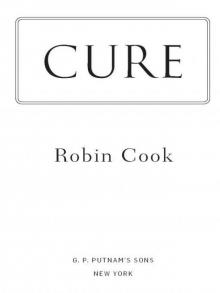 Fatal Cure
Fatal Cure Host
Host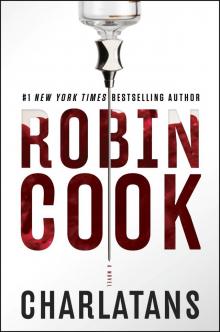 Charlatans
Charlatans Crisis
Crisis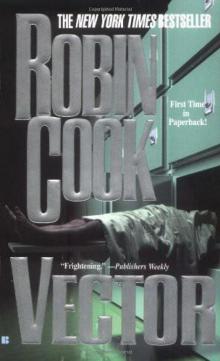 Vector
Vector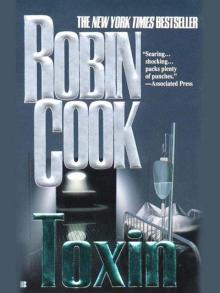 Toxin
Toxin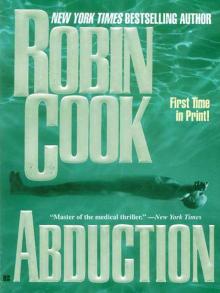 Abduction
Abduction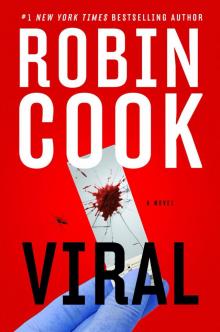 Viral
Viral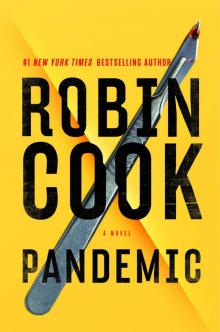 Pandemic
Pandemic Outbreak
Outbreak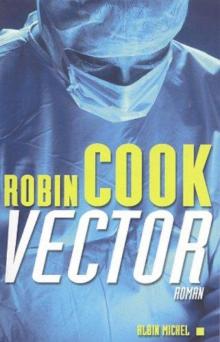 Vector js&lm-4
Vector js&lm-4 Godplayer
Godplayer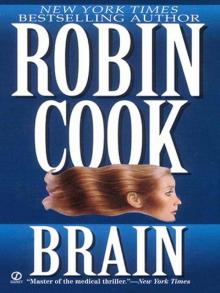 A Brain
A Brain Year of the Intern
Year of the Intern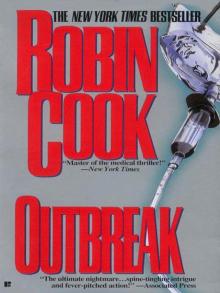 Outbreak dmb-1
Outbreak dmb-1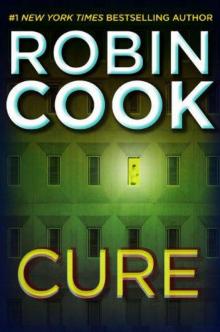 Cure
Cure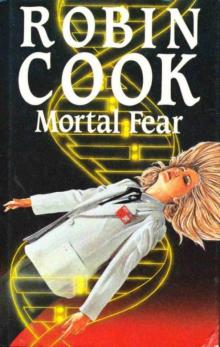 Mortal Fear
Mortal Fear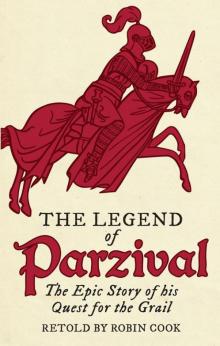 The Legend of Parzival
The Legend of Parzival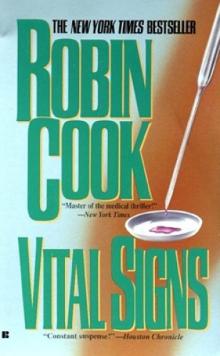 Vital Signs dmb-2
Vital Signs dmb-2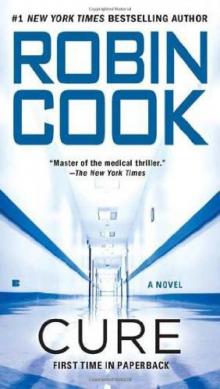 Cure (2010) sam-10
Cure (2010) sam-10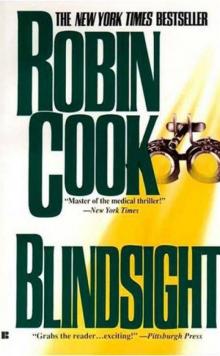 Blindsight sam-1
Blindsight sam-1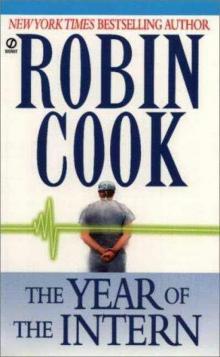 The Year of the Intern
The Year of the Intern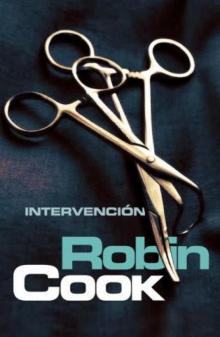 Intervention sam-9
Intervention sam-9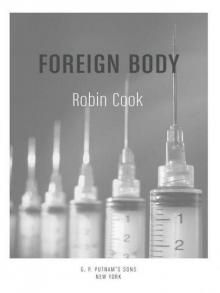 Foreign Body sam-8
Foreign Body sam-8